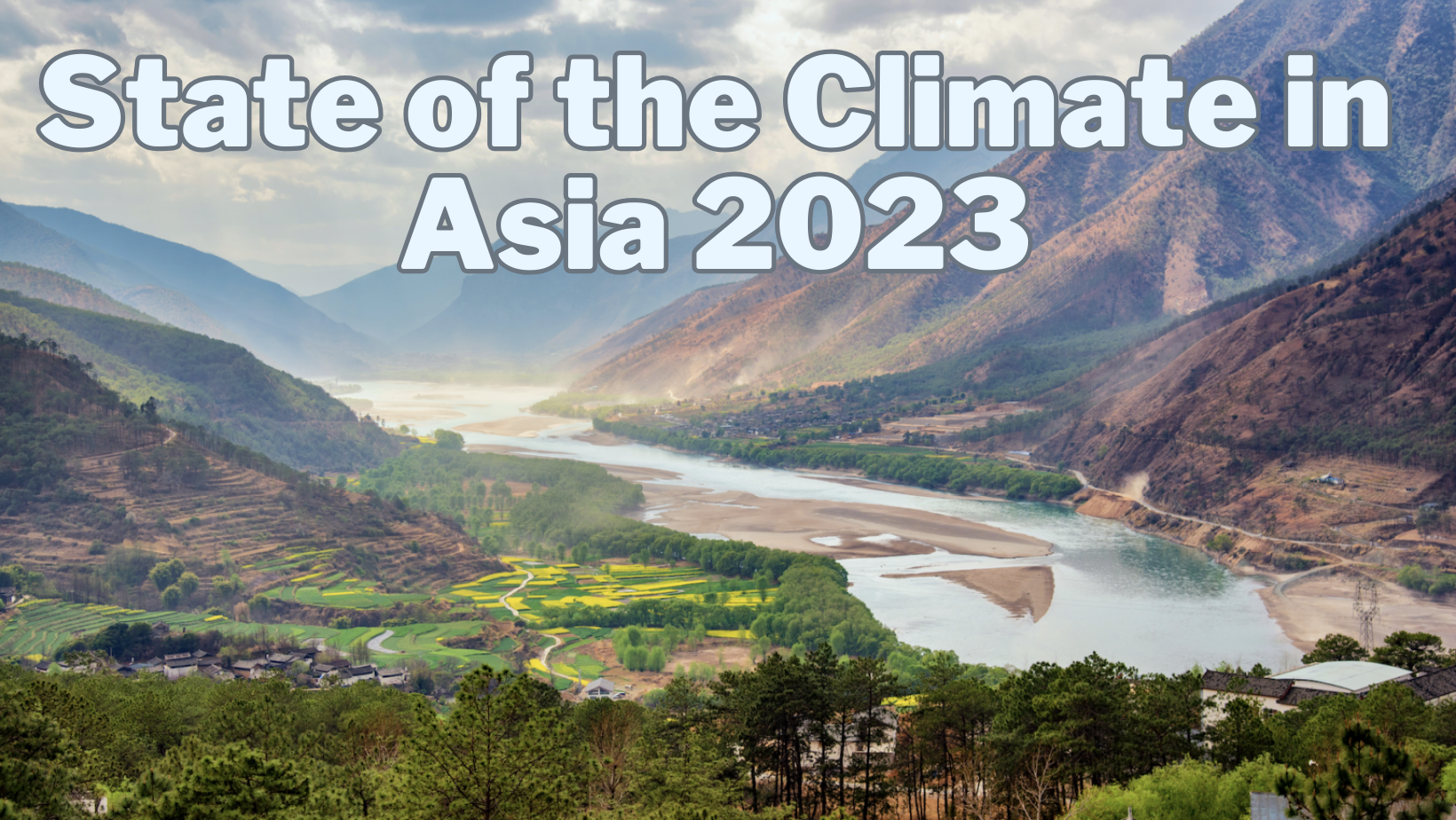State of the Climate in Asia 2023 Report

- 24 Apr 2024
Why is it in the News?
As Asia is warming faster than the global average, it is witnessing more extreme weather, climate, and water-related events than any other region across the world.
Highlights of the State of the Climate in Asia 2023 Report:
- The 2023 State of the Climate in Asia Report, spearheaded by the World Meteorological Organization, sheds light on significant climate trends and events across the continent:
- In 2023, Asia witnessed 79 extreme climate events, affecting over nine million individuals, making it the most disaster-affected region.
- Atmospheric concentrations of carbon dioxide, methane, and nitrous oxide soared to unprecedented levels in 2022.
- Oceans have absorbed approximately a quarter of the carbon dioxide emitted annually into the atmosphere since 1960, resulting in record-high ocean heat content in 2023.
- Tropical cyclone activity over the North Indian Ocean surpassed the average.
- 2023 marked Asia's second-highest mean temperature on record, with Japan and Kazakhstan experiencing record warmth.
- Glacial retreat accelerated in 2023, particularly in the East Himalayas and Central Asia's Tian Shan mountains, due to elevated temperatures and arid conditions.
About the World Meteorological Organisation:
- The World Meteorological Organization (WMO) is a specialized agency of the United Nations with a membership of 193 member states and territories.
- It is the UN system's authoritative voice on the state and behavior of the Earth's atmosphere, its interaction with the oceans, the climate it produces, and the resulting distribution of water resources.
- WMO originated from the International Meteorological Organization, the roots of which were planted at the 1873 Vienna International Meteorological Congress.
- Established by the ratification of the WMO Convention on 23 March 1950, WMO became the specialized agency of the United Nations for meteorology (weather and climate), operational hydrology, and related geophysical sciences a year later.
- The Secretariat, headquartered in Geneva, is headed by the Secretary-General.
- Its supreme body is the World Meteorological Congress.
